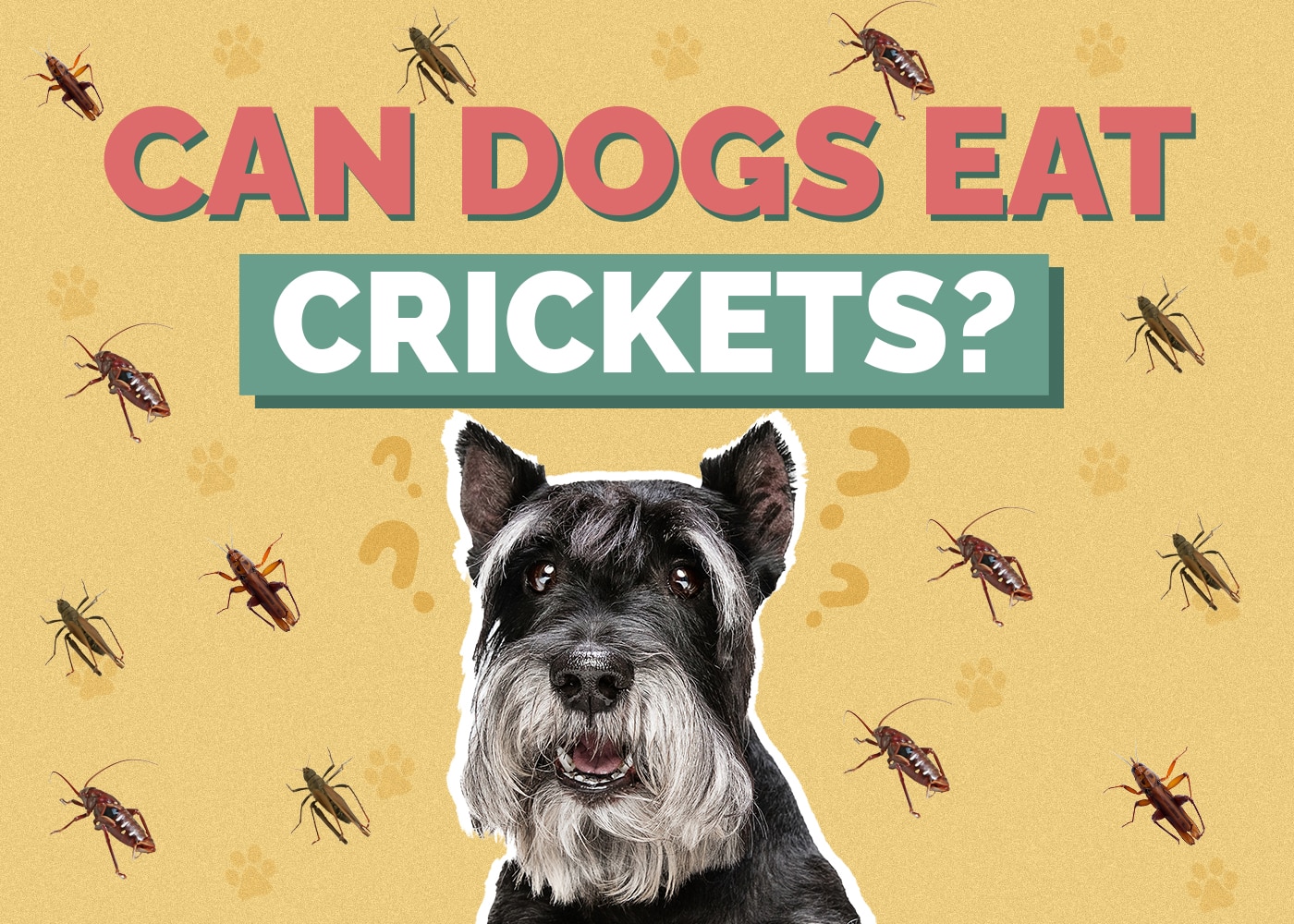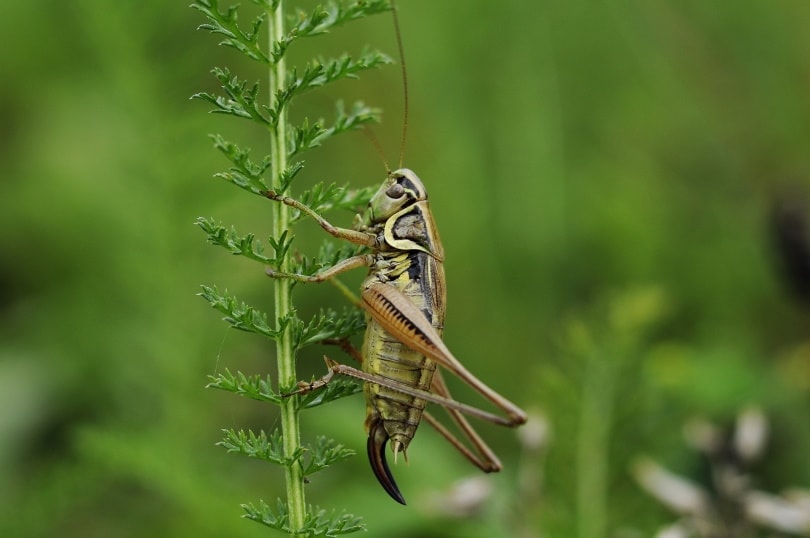Can Dogs Eat Crickets? What Science Says!

Updated on

Crickets may not sound like the tastiest treat for you, but your dog might have a different idea. Chasing crickets around the yard is fun, and your dog probably finds them tasty, too. Is it safe for your pup to be eating these insects, though? In most cases, yes!
Insects like crickets can serve as a novel high-quality protein source for dog foods. You might have even seen dog food that contains crickets. But, as with almost anything, serving your pup a bowl full of crickets doesn’t come without risks.
Keep reading to learn more about how these pesky little insects can benefit your dog and what risks you should be aware of.
 Are Crickets Healthy?
Are Crickets Healthy?
You might be surprised to learn that crickets offer several health benefits to your curious canine and you if you’re brave enough. Don’t scoff; crickets are a regular part of the human diet in several countries and are even a delicacy in Mexico.
They contain protein, iron, B vitamins, and calcium, all beneficial for your dog’s health. They’re low in saturated fats and sugars and provide a good dose of fiber. In addition, crickets are a great source of the essential Branched-Chain Amino Acids (BCAAs): leucine, isoleucine, and valine. These amino acids are necessary for dogs as their bodies do not make them, so they must be ingested through food or supplements.
Don’t believe us? The science backs up these claims! A study from 2020 shows that cricket meal is an acceptable source of protein. Another study shows that the amino acid score of house crickets is high and comparable to that of fish meal. This study also indicates crickets are easy for dogs to digest and may be more digestible than common meat proteins in dog foods.
It’s not just your dogs that crickets are good for, though, as insects as feed are great for the environment. They are a highly sustainable food source as they produce fewer greenhouse gases and require minimal water, feed, and space when compared to other protein sources. Their carbon footprint is small, and they don’t release methane like cattle.

Are There Risks to Feeding Dogs Crickets?
Crickets in the wild can carry a parasite called Physaloptera which can be transmitted into your dog’s stomach. Studies show that a Physaloptera infestation is relatively infrequent in dogs. A dog with this parasite will show symptoms of gastritis and vomiting. Severe cases may lead to bleeding ulcers, dark feces, anemia, and weight loss.
Diagnosis through fecal testing can be difficult as the parasite’s eggs are hard to find on a fecal flotation test. Your vet may recommend a gastroscopy to determine if this parasite is the reason for your dog’s illness. You may also see immature worms in your dog’s vomit which would alert you that there is an issue.
Aside from parasites, crickets have a tough exoskeleton that may irritate your dog’s stomach, though some will gobble them up without any problem.
 Final Thoughts
Final Thoughts
While crickets are a perfectly healthy and acceptable protein source, more testing is needed. Wild crickets may pose an issue for your dog if they’ve been subjected to pesticides or are hosts for the Physaloptera larvae. Additional innovations may need to be implemented to control how crickets are farmed, fed, and cooked for use in dog foods.
Featured Photo Credit: Piqsels

 Are Crickets Healthy?
Are Crickets Healthy?








